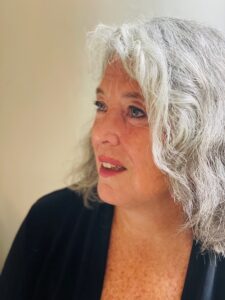
 Recently, I read an article in The New York Times about Aboubakar Fofana, from France & Mali (West Africa), who revives the ancient dyeing technique using the indigo plant to produce modern textiles. The green indigo plant dyes a deep, rich blue. The article mentioned that his work was on display at the Atelier Courbet in NYC through August. Here is a write-up of his process.
Recently, I read an article in The New York Times about Aboubakar Fofana, from France & Mali (West Africa), who revives the ancient dyeing technique using the indigo plant to produce modern textiles. The green indigo plant dyes a deep, rich blue. The article mentioned that his work was on display at the Atelier Courbet in NYC through August. Here is a write-up of his process.
I went downtown to the gallery with two friends to witness his craft. The partner in the gallery asked if we wanted to know more about Fofana’s process. I was curious. She spoke fluently of his stories and of the origins of his incredible work.
We began to speak about the purity of everything he creates.
She adds: “Today, so many people are much less interested in buying labels. They are much more concerned about the Provenance (such an elegant word) of things – the origins, the genesis, where it comes from, and how its’ made, is it local or is it pure, organic and good for the world.
Isn’t this so when we are forming relationships? Don’t we want to know the source of each other? Where we come from? Where and how are our values are made? Are we good for the world?
I have a client company who is merging with a Chinese company and there is concern about how to meet and build relationship with one another. I reached out to a friend of Chinese descent and this was his advice:
“Well, you actually raised a very interesting question, and also a difficult one. As a Chinese, I would say some Chinese can be difficult to read and communicate as every one comes from such different backgrounds.
The key to communicate with people who are Chinese is to do some small prep talks: to get to know where they are from, what kind of family they come from, what kind of education and what they have been through, and what level they are in the organization (as it is still a very hierarchical society). You will find out that some people are very easy to approach, very personal, open and direct. Some of them are completely the opposite. At least that is my way of getting to know my own people.”
It’s about the provenance of things and of people.
The next time you need to build Rapport, instead of asking a new person you meet, “what do you do?”, ask “where are you from?” There is so much more to be learned from that.
Here are more examples of the provenance of Fofana’s process:
The indigo master is equally committed to the use of chemical-free techniques at every step of fabrication from the raw material of the textile to the dyeing processes in his atelier. With equal commitment to the preservation of the eco-system at the core of his work, Aboubakar uses the spent dyestuffs to fertilize crops. He scours the world for fine textile that are 100% handmade and organic with a preference for cotton, indigenous to Mali that is first spun by hand before being woven on a strip-loom and sewn together in the traditional way.



